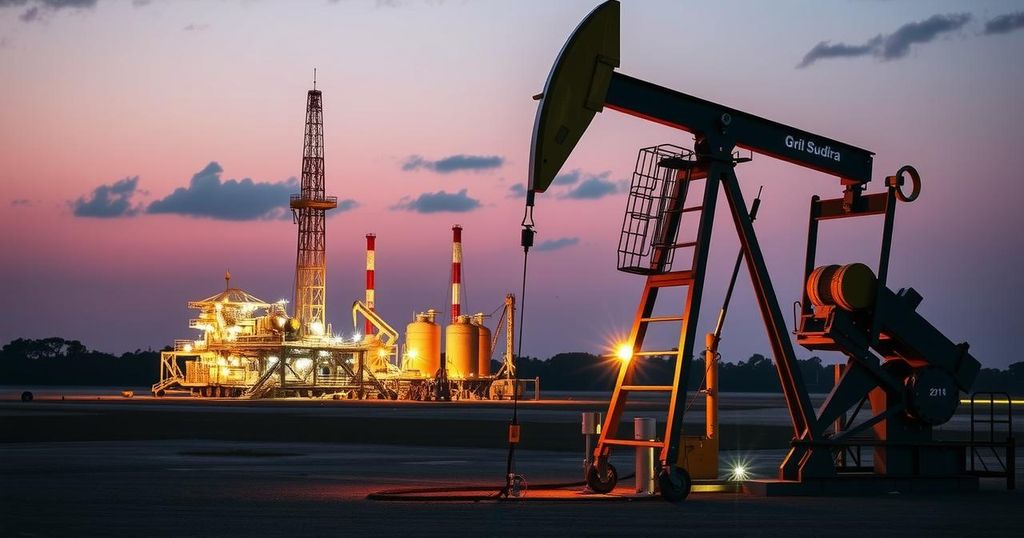South Sudan aims to revive oil production after pipeline damage halted exports amid conflict in Sudan. The Petroleum Authority announced a planned kick-off for production on December 30, 2024. Despite possessing oil reserves, ongoing stability issues continue to impede the country’s economic recovery.
South Sudan has announced plans to resume its crude oil production, which had been halted due to damage incurred to a crucial pipeline amidst regional conflicts in neighboring Sudan earlier this year. According to a letter from the Petroleum Authority’s director general, Kon John Akot, the country targets December 30, 2024, as the recommencement date for production operations in oil blocks three and seven. The letter also instructed Dar Petroleum Operating Company (DPOC), part of the consortium managing the nation’s oil fields, to expedite their production resumption plans.
The recent conflict between Sudan’s military and the paramilitary Rapid Support Forces severely impacted South Sudan’s economy by interrupting the vital oil exports that previously traversed through Sudan to the Port of Sudan on the Red Sea, where transit fees were paid to Khartoum. Currently, some logistical challenges remain to be addressed before resuming oil output. A statement from DPOC highlighted the outstanding issues that necessitate further discussions before a definitive resumption date can be established.
Despite possessing substantial oil reserves, South Sudan, which gained independence in 2011, has faced ongoing challenges, including ethnic conflicts, economic instability, and natural disasters, hindering its growth. Recently, the country has also been struggling with a cholera outbreak, particularly among vulnerable populations fleeing violence from Sudan. Prior to the pipeline disruption, South Sudan produced over 150,000 barrels of crude oil per day, as noted in the bp Statistical Review of World Energy.
South Sudan, the world’s youngest nation, gained independence from Sudan in 2011 and assumed control over a significant portion of the region’s oil reserves. The country relies heavily on this resource for economic stability, with oil being its primary export. However, ongoing internal and external conflicts, including ethnic violence and economic instability, have severely affected its oil production capabilities. The recent rupture of pipelines amid conflict in Sudan has exacerbated these issues, further challenging the nation’s already fragile economy. The planned resumption of oil production serves not only as an economic imperative but also as a crucial step towards recovery for a nation in distress.
In conclusion, South Sudan’s announcement to resume oil production marks a potential turning point for an economy severely affected by conflict and infrastructure damage. While the targeted restart date of December 30, 2024, offers hope, logistical and operational hurdles persist that require resolution. As the country continues to navigate its path towards stability and recovery, the success of this initiative will be critical for the economic well-being of its people.
Original Source: www.barrons.com






